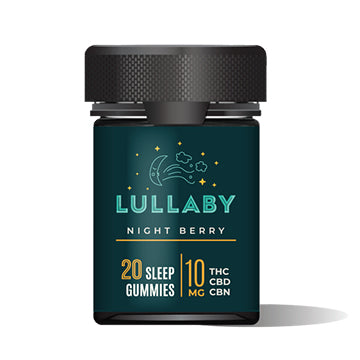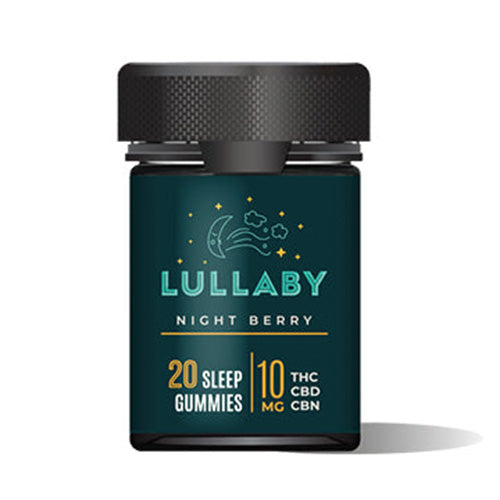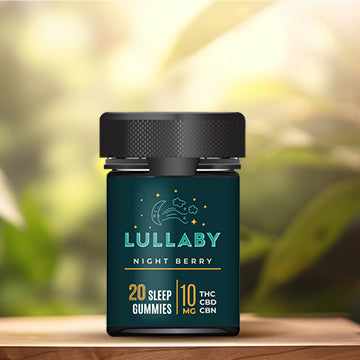In the last few years, poison control centers in various states have seen an increase in the number of calls concerning children and melatonin gummies kids. The vibrant tints and sweet tastes of these gummies have made them a common option in many homes feasting on bedtime tussles. Nevertheless, the candy-like characteristic and taste have brought with it another challenge which is accidental overconsumption in children.
The situation in which a child eats melatonin gummies in excess is more prevalent than most parents are aware of. In the United States, the rate of pediatric ingestions of melatonin has skyrocketed. Even worse, many of the cases reported fairly involved instances when a child ate whole bottle of melatonin gummies assuming them to be ordinary sweets.

Flower of the Month Subscription
|

Lullaby Sleep Gummy Night Berry
|

GreeenBox Subscription
|
Melatonin & Its Use in Children
Melatonin is a natural hormone secreted by the pineal gland in the human brain. It has a significant influence on the circadian cycle, which regulates the sleep-wake cycle of an individual. Over the last few years, exogenous melatonin has become widely accepted as a treatment for insomnia, particularly in the form of chewing gums for kids.
Melatonin gummies kids are often administered to children suffering from sleep disorders, such as trouble in initiating or maintaining sleep. These supplements can be helpful for some children when used in the recommended manner. Nevertheless, the ease of access and the chewable nature of the gummies have contributed to an increase in cases of accidental overdoses.
Read more: Are Melatonin Gummies Safe for Kids?
The Attraction of Melatonin Gummies
The appeal of Sweet Dreams Sleep Gummies to children is undeniable. They often come in bright colors and fun shapes, and have a sweet, fruity taste. To a child, they may look no different from regular candy gummies. This resemblance is part of what makes them so dangerous.
Parents often keep these gummies within easy reach, not realizing the potential risk they pose. Unlike many other medications, melatonin is not required to be in childproof containers, making it easier for curious little hands to access.
Signs and Symptoms of Melatonin Overdose in Children
When a child ate melatonin gummies in excess, several symptoms may occur. It's important for parents and caregivers to be aware of these signs:
- Excessive sleepiness: This is often the first and most common symptom.
- Headaches: Some children may complain of head pain.
- Dizziness: The child may feel unsteady on their feet.
- Irritability: Paradoxically, some children may become more agitated.
- Nausea and vomiting: Gastrointestinal upset is not uncommon.
- Changes in blood pressure: This may not be noticeable without medical equipment.
In more severe cases, particularly if a child ate whole bottle of melatonin gummies, additional symptoms may include:
- Disorientation or confusion
- Difficulty breathing
- Seizures (in rare cases)
It's paramount to note that the severity of symptoms can vary greatly depending on the child's age, weight, and the amount of melatonin consumed.
Read more: How Long Does It Take for Melatonin Gummies to Work?
Immediate Steps to Take
If you suspect your child ate too many melatonin gummies, it's important to act quickly. Here are the immediate steps you should take:
- Don't panic: Stay calm to think clearly and act effectively.
- Assess the situation: Try to determine how many gummies were consumed and when.
- Call for help: Contact your local poison control center or emergency services immediately.
- Do not induce vomiting: Unless instructed to do so by a medical professional.
- Keep the child awake: If possible, try to keep the child conscious and alert.
- Provide information: Be ready to provide details about the child's age, weight, and the amount of melatonin consumed.
It's always better to err on the side of caution. Even if you're unsure about the quantity consumed, seeking medical advice is the safest course of action.
Medical Treatment for Melatonin Overdose
When a kid ate melatonin gummies in excess, medical professionals will assess the situation and provide appropriate treatment. In most cases, treatment is supportive, meaning it focuses on managing symptoms and ensuring the child's safety until the effects of the melatonin wear off.
Treatment may include:
- Monitoring vital signs: Healthcare providers will keep a close eye on the child's heart rate, blood pressure, and breathing.
- Intravenous fluids: If the child is experiencing nausea or vomiting, IV fluids may be administered to prevent dehydration.
- Activated charcoal: In some cases, activated charcoal may be given to help absorb any remaining melatonin in the digestive system.
- Observation: The child may need to stay in the hospital for observation, particularly if they consumed a large amount of melatonin.
It's important to note that there is no specific antidote for melatonin overdose. The body will eventually metabolize and eliminate the excess melatonin, but this process can take time.
Long-term Effects and Concerns
While most cases of melatonin overdose in children resolve without long-term consequences, there are some concerns about potential lasting effects, particularly with repeated exposures.
Some researchers worry that regular use of high doses of melatonin could potentially affect a child's growth and development, particularly their hormonal balance. However, more research is needed in this area to fully understand the long-term implications.
Another concern is the potential for developing a reliance on melatonin for sleep. If a child becomes accustomed to using Sweet Dreams Gummies to fall asleep, they may have difficulty sleeping without them.
Read more: How Long Do Weed Gummies Stay in Your System?
Preventing Melatonin Overdose in Children
Prevention is always better than cure. Here are some steps parents and caregivers can take to prevent melatonin overdose in children:
- Store safely: Keep all medications, including melatonin gummies kids, out of reach and sight of children. Consider using a locked medicine cabinet.
- Educate your children: Teach them about medication safety from an early age. Explain that vitamins and supplements are not candy, even if they look and taste similar.
- Use as directed: If you're giving your child melatonin, always follow the dosage instructions provided by your healthcare provider.
- Choose appropriate formulations: Consider using non-gummy forms of melatonin for children old enough to swallow pills.
- Be a good role model: Let your children see you taking medications responsibly.
- Dispose properly: Get rid of unused or expired medications promptly and properly.
Alternative Sleep Strategies for Children
While Sweet Dreams Sleep Gummies may seem like an easy solution for children's sleep problems, it's important to consider other strategies first. Establishing good sleep hygiene can often resolve many sleep issues without the need for supplements.
Some effective strategies include:
- Consistent bedtime routine: A regular, calming routine before bed can signal to the body that it's time to sleep.
- Limiting screen time: The blue light from screens can interfere with natural melatonin production. Try to avoid screens for at least an hour before bedtime.
- Creating a sleep-friendly environment: Ensure the child's bedroom is dark, quiet, and at a comfortable temperature.
- Regular exercise: Physical activity during the day can help promote better sleep at night.
- Addressing anxiety: If worry or stress is keeping your child awake, consider talking to a pediatric mental health professional.
When to Consult a Healthcare Provider?
If your child is experiencing ongoing sleep issues, it's important to consult with a healthcare provider before starting any sleep aid, including melatonin. A doctor can help identify any underlying causes of sleep problems and provide appropriate treatment options.
Additionally, if your child ate melatonin gummies in excess, even if they seem fine, it's a good idea to follow up with your pediatrician. They can provide guidance on any necessary monitoring or precautions.
The Role of Regulation and Manufacturing Standards
As the popularity of child melatonin gummies continues to grow, there are increasing calls for stricter regulation and manufacturing standards. Currently, melatonin is classified as a dietary supplement in many countries, which means it's not subject to the same rigorous testing and regulation as prescription medications.
This lack of strict oversight can lead to inconsistencies in dosage and quality between different brands of melatonin gummies. Some studies have found that the actual melatonin content in gummies can vary significantly from what's stated on the label.
Advocates are pushing for more stringent standards, including:
- Accurate labeling of melatonin content
- Childproof packaging for all melatonin products
- Clear dosage instructions based on age and weight
- Warnings about potential side effects and interactions
Read more: What Happens If You Eat Expired Edible Gummies?
Takeaway
The increasing availability of child melatonin gummies has both pros and cons. They can be useful for children with sleeping problems, but on the other hand, children can easily overdose on them. Should you opt for melatonin gummies for your little one, it is best to do that under a doctor’s supervision and there are safety measures that must be followed without fail.
Are restless nights keeping you from feeling your best? Greeen Box has got you covered. Say goodbye to tossing and turning with Sweet Dreams Sleep Gummies. We're committed to helping you achieve the restful sleep you deserve. Our gummies are crafted with care to ensure you wake up feeling energized and ready to tackle your day.
Don't let another sleepless night pass you by. Try Sweet Dreams Gummies and rediscover the joy of a good night's sleep.



